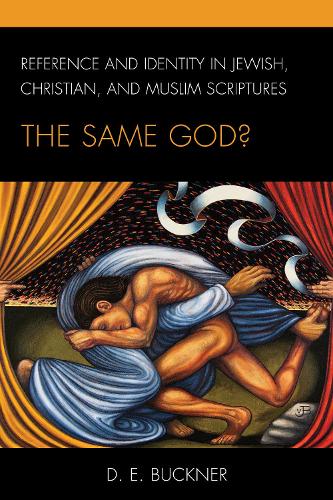
Reference and Identity in Jewish, Christian, and Muslim Scriptures: The Same God
(Paperback)
Available Formats
Publishing Details
Reference and Identity in Jewish, Christian, and Muslim Scriptures: The Same God
By (Author) Dean Edward Buckner
Bloomsbury Publishing PLC
Lexington Books
17th May 2022
United States
Classifications
Professional and Scholarly
Non Fiction
Semantics, discourse analysis, stylistics
Comparative religion
401.456
Physical Properties
Paperback
250
Width 155mm, Height 216mm, Spine 14mm
331g
Description
In Reference and Identity in Jewish, Christian, and Muslim Scriptures: The Same God, D. E. Buckner argues that all reference is story-relative. We cannot tell which historical individual a person is talking or writing about or addressing in prayer without familiarity with the narrative (oral or written) which introduces that individual to us, so we cannot understand reference to God, nor to his prophets, nor to any other character mentioned in the Jewish, Christian, or Muslim scriptures, without reference to those very scriptures. In this context we must understand God as the person who walked in the garden in the cool of the day (Gen. 3:8), and who is continuously referred to in the books of the Hebrew Bible and New Testament, as well as the Quran. Further developing ideas presented by the late Fred Sommers in his seminal The Logic of Natural Language, Buckner argues that singular reference and singular conception is empty outside such a context.
Reviews
Buckner (philosophy, Univ. of Bristol, UK) begins by posing a philosophical question: Do Muslims and Christians worship the same God He proposes that if the answer is yes, one of them must have a false belief about God; if the answer is no, one of them is not worshiping the true God. To determine which proposition is correct, Buckner delves into the philosophy of language, focusing on reference in order to explain how words attach themselves, become applied to, and indeed become signifiers of something. Buckner challenges standard understandings of reference and asserts that they are story-relative. He intersects that concept with notions of identity, truth, and existence as a way to solve the age-old question of God within the three Abrahamic traditions. The author's argument hinges on his deft explanation of what story-relative ultimately means for references to and about deity in the various scriptures, whether oral or written. Buckner separates the to and the about and is able to make a compelling claim on where Jews, Christians, and Muslims differ on the subject of God. Furthermore, while asserting very real differences based on different stories, he is also able to identify how Jews, Christians, and Muslims converge with respect to God as the object of prayer. Summing Up: Recommended. Upper-division undergraduates through faculty.
* Choice *"D. E. Buckner advances a novel argument in the philosophy of language according to which all reference is story-relative. In so doing, he discusses such core topics as reference, identity, truth, and existence. But what makes this book exciting and important is his application of his argument to a question that has ignited bitter controversy over the centuries: Do the Jewish, Christian, and Muslim scriptures refer to the same God Buckner appreciates what many miss, namely, that a satisfactory resolution of this question requires close attention to the philosophy of language. Strongly recommended." -- William Vallicella, University of Dayton
"D.E. Buckner's excellent book is primarily concerned with the topic referred to in the first word of its title. Religious texts provide a useful context for this. Ultimately what Buckner offers here is a master class in the way a crucial problem in the philosophy of language should be addressed."
-- George Englebretsen, Bishop's UniversityAuthor Bio
D. E. Buckner taught philosophy at the University of Bristol.
